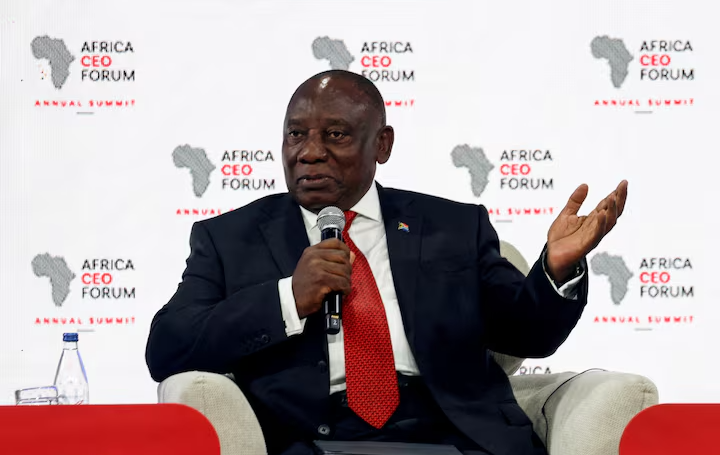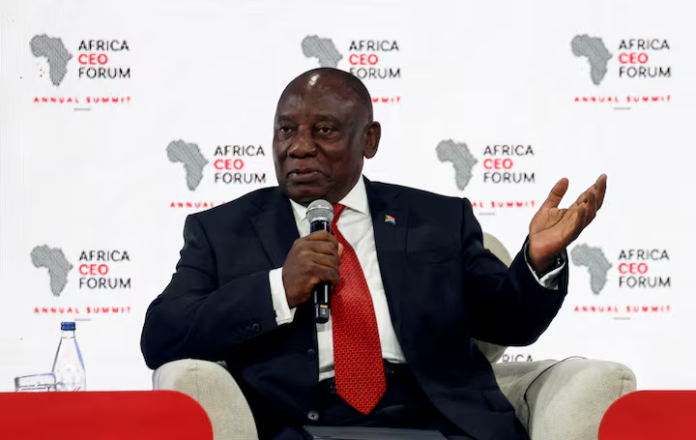South African President Cyril Ramaphosa is preparing for a high-stakes visit to the White House on Wednesday as tensions between his country and U.S. President Donald Trump reach a boiling point.
Since the beginning of Trump’s second term, relations between Washington and Pretoria have steadily declined. Trump has criticized South Africa’s land reform policies and its genocide case against Israel at the International Court of Justice. In response, the U.S. has slashed aid, expelled South Africa’s ambassador, and controversially offered refugee status to white South Africans, citing alleged racial discrimination—claims South Africa strongly denies.
Despite the hostility, Ramaphosa is choosing diplomacy over confrontation. His office stated the purpose of the visit is to “reframe bilateral, economic, and commercial relations,” a move that signals Pretoria is keen on salvaging one of its most vital partnerships. The U.S. remains South Africa’s second-largest trading partner after China.
The aid cuts have already taken a toll, especially on public health. HIV testing among pregnant women and children has significantly declined, raising alarm among health officials. “Whether we like it or not, we are joined at the hip,” Ramaphosa said on South African television, underlining the importance of continued dialogue.
As part of his strategy, Ramaphosa plans to pitch a comprehensive trade deal to Trump. Though details are under wraps, it’s expected to include incentives for Elon Musk’s Tesla and Starlink—two companies with strong U.S. backing and a personal connection to South Africa through Musk himself, who has publicly accused Ramaphosa’s government of anti-white bias, which the president strongly rejects.
Sources say discussions may include reduced tariffs on Tesla products in exchange for EV charging infrastructure in South Africa, and a license to operate Starlink’s internet service across the country.
However, Trump is expected to press for exemptions from South Africa’s Black Economic Empowerment (BEE) requirements, which mandate that large companies either have 30% equity owned by historically disadvantaged groups or invest equivalent amounts in training and development. Changing these laws could prove politically difficult for Ramaphosa, as they align with the ruling ANC’s post-apartheid justice agenda.
Accompanying Ramaphosa is Agriculture Minister John Steenhuisen, who will push to preserve South Africa’s duty-free access to U.S. markets under the African Growth and Opportunity Act (AGOA)—a privilege now threatened by Trump’s aggressive tariff policies.

Trump’s February executive order accused South Africa of harboring anti-white sentiment and blamed land reform for increased violence against white landowners. Pretoria dismissed the claims as factually incorrect and blind to the country’s painful colonial and apartheid history. Today, white South Africans—only 7% of the population—still own about 75% of private farmland and earn significantly more than the Black majority.
Ramaphosa, once the ANC’s chief negotiator during the peaceful end of apartheid, is known for his sharp diplomatic skills. He’ll likely need every bit of that charm to win over Trump. But analysts believe his past as a successful businessman might be his strongest card. “He needs to approach this as a businessman first,” said Jan Venter, a political analyst at North-West University.
Even so, experts warn that policy disagreements—not just trade—are at the heart of the current rift. “Deals alone won’t heal this relationship,” said Joshua Meservey of the Hudson Institute.



